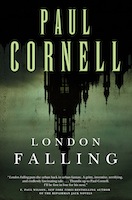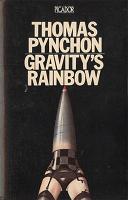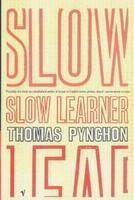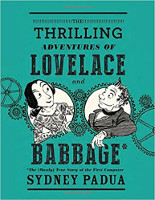 When hearing of a book talking about how there’s more to London than what meets the eye (which is something which is obvious to us Londoners) then most people, I'd guess, will think of Neil Gaiman’s Neverwhere.
When hearing of a book talking about how there’s more to London than what meets the eye (which is something which is obvious to us Londoners) then most people, I'd guess, will think of Neil Gaiman’s Neverwhere.
So, London Falling, the latest book by acclaimed author Paul Cornell, plays on there being more to London than what meets the eye. But hold that thought right there – this is no Neverwhere, but, at least for me, much closer related to Iain Sinclair’s story Hardball from Slow Chocolate Autopsy, both in terms of darkness, feeling of being lost, as well as in terms of rituals and ritual violence in relation to football.
Paul Cornell is best known for his Doctor Who tie-ins and his comic work on Saucer Country (and I’m sorely tempted to delve into those), and he’s been nominated for the BSFA and the Hugo Award for his short story The Copenhagen Interpretation, which is the latest instalment in his highly enjoyable Jonathan Hamilton series.
London Falling is, at its heart as well as in in its form, a police procedural. Now, I know that there have been several of those before playing in a London mirrored in an alternative/underground London, but, what this maybe lacks in novelty it makes up for in inventiveness and sheer drive.
The story starts out as a fairly standard Police procedural – we join a police unit at the end of a lengthy undercover operation, led by DI Quill. What is special about is that the target, Rob Toshack, is both the uncontested boss of all London criminal gangs which he has unified under his banner, and apparently impervious to any prosecution. Nothing of any real extent is ever found or made to stick - he's a proper teflon man. And the current operation also does not seem to yield any real evidence or smoking guns, despite two undercover agents, Costain and Sefton, having established themselves in his inner circle of trusted soldiers.
So, when the operation arrests all the criminals they have been following (not because they have sufficient evidence, but because the the plug is about to be pulled on the operation due to the lack of results) they are in for a shock when Toshack dies, violently and bloody, during his first interview. Just as he, to everybody’s surprise, started to confess. It obviously is murder, but how? And who? And, in the end, why exactly?
When the team, with the help of their long-standing intelligence analyst Lisa Ross, follow some of the remaining leads from the operation, they come across two things which turn their world and their investigation on their head. Firstly they find outside the police station where Toshack was murdered an unusual, spiral pile of Earth, which in turn leads them to a long series of murders – of criminals, but also of footballers who scored a hat-trick against Millwall FC. An apparently the threat against players scoring a hat-trick is, by Millwall lore, linked to a long-standing, infamous supporter called Mora Losley.
And between that lead, and an analysis of Toshack’s unusual activities on his final evening they find a house which holds surprises – firstly a cauldron with the remains of three little children, boiled to death, and secondly a large tub of earth in spiral form, which by some way conveys on them the Sight – the ability to perceive objects, events, and entities which normal people cannot see (but perceived, out of the corner of the eyes, and react to), adding an additional level, or rather an additional dimension to London.
And all they have to navigate this unknown world, and bring their suspect to justice, are their standard police procedures…
The main concept in the book, underpinning the actual events, is history. Of London, of the protagonists, and of their mark. Or maybe I'd better call it memory, given that this is an active property here? There is power in being remembered (and boy does London have a weight of history, and remembered - sometimes incorrectly! - events and locations), but as the characters find there's also power in remembering, in facing memories, and in ceasing to delude yourself.
How many places are there in the world where you could set such a book? With such a weight of history, or memory, and of layers and layers of re-constructed and compacted events to build on? No, London is not the only one, many places have loads of history, but few have such weight. And the story uses this.
This book is, as you might have gathered, essentially Urban Fantasy (as the genre is now called) with added Police. It also is, despite a topic I was slightly dubious about, a really enjoyable read. The story moves forward, frequently a breakneck speed, and leaves you (as well as the protagonists) feel slightly dizzy, slightly ahead of the curve, with never enough knowledge and understanding of what is going on, and why, and how. And the reader does not get any extra information – we see things through the eyes of the officers in the story, and know what they know (with very few exceptions, when the author keeps things a protagonist knows from the audience for a dramatic effect).
There are a number of surprises and about-turns in the story, and at some point a proper Beyond the Law moment (of very little consequence, though). Some scenes veer close to horror, but I did not really find anything which should be a problem for your average reader.
The author leaves a number of strands open and questions unanswered, and the epilogue clearly leaves the door wide open for further stories in the same world – the next book, The Severed Streets, is scheduled for December. Paul Cornell is definitely on my list of authors to look out for, and he should be on yours.
And this book should be on your reading pile.
Title: London Falling
Author: Paul Cornell
Reviewer: Markus
Reviewer URL: http://thierstein.net
Publisher: TOR
Publisher URL: http://www.tor-forge.com
Publication Date: 15/04/13 (US)
Review Date: 26/04/13
ISBN: 978 1 4299 4672 8
Pages: 417
Format: ePub
Topic: Urban Fantasy
Topic: Police Procedural
Thanks to the publisher for the review copy.













